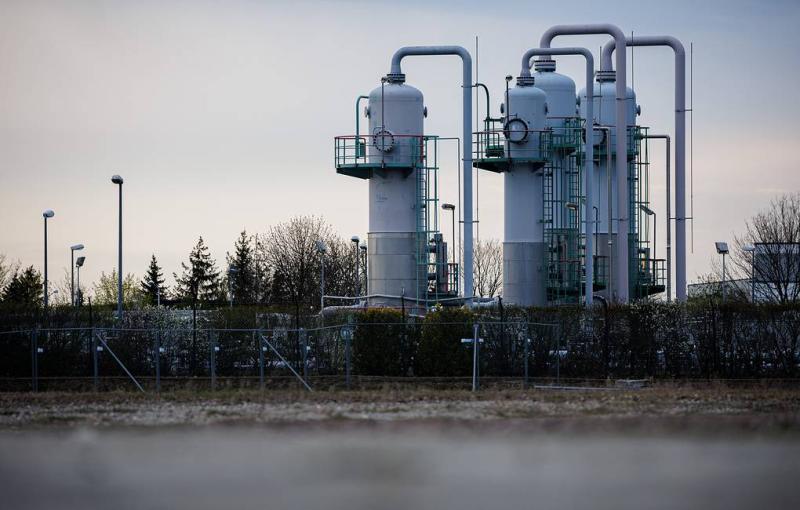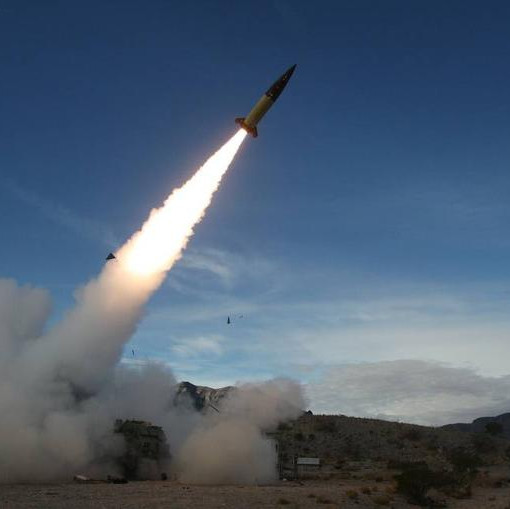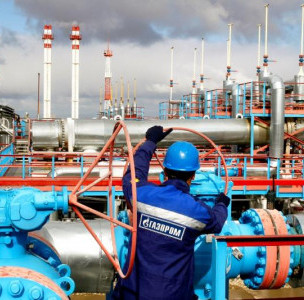
© Stringer/Getty Images/TASS
Top stories from the Russian press on Wednesday, March 29th, prepared by TASS
The EU attempts to restrict Russian gas usage, Ukraine fears possible offensive from Belarus, and the US holds a token Summit for Democracy. These stories topped Wednesday’s newspaper headlines across Russia.
Kommersant: EU tries to limit gas consumption
Europe continues to take measures to reduce its reliance on pipeline and liquefied gas overall and particularly from Russia. The EU Council approved a "gas package" incorporating the transition to renewable resources, as well as extending a 15% restriction on gas usage for one year and allowing countries to refuse LNG from Russia. Experts told Kommersant they believe this course is risky, given the volatile nature of renewable energy generation.
According to a statement issued following the meeting of the European Union's Council of Energy Ministers, savings measures are needed to ensure the reliability of supply, maintain price stability, and guarantee that underground gas storage (UGS) facilities are filled to 90% by November 1 for the next heating season. At the same time, the EU Council reserved the right to make the reduction of gas consumption mandatory in case of an emergency.
Vyacheslav Mishchenko from the Center for Strategy and Technology Analysis for the Development of the Fuel and Energy Complex of the Gubkin Russian State University of Oil and Gas believes that the prospects for Russian gas in this market, where supply already reached a historic low last year, are extremely negative. According to him, raw material exports to the EU will continue to fall sharply in 2023.
At the same time, the reduction affects not only Gazprom and the Russian budget but also domestic industrial production, particularly the mineral fertilizer sector and metallurgy, which are compelled to reduce capacity, the expert told Kommersant.
He noted that the European energy sector, betting on renewable energy sources, has entered the danger zone - the current heating season was largely helped by warm winter weather and there are many questions about the next one, because it is now impossible to replace the departed Russian volumes, given the mobility of LNG, whose suppliers can easily redirect volumes to more lucrative markets.
Izvestia: United States hosts token Summit for Democracy
The second Summit for Democracy hosted by US President Joe Biden takes place on March 28-30. The summit's organizers intend to strengthen the unity of democratic countries against rising autocracies, particularly Moscow and Beijing, according to the White House. The Ukrainian conflict, the fight against corruption, women’s rights, cooperation to promote democracy, as well as a range of other issues are all planned for discussion. According to Izvestia's experts, the gathering is merely symbolic in nature, and its guest list may be more significant than its substance.
More countries from Asia, Africa, and Latin America are expected to participate in the summit this time around. Meanwhile, Pakistan turned down its invitation, and Turkey and Hungary were not brought back from last year. Instead, India was invited to the summit.
The Russian Foreign Ministry believes that through the summit Washington is attempting to legitimize interference in the affairs of other countries. According to Russian Foreign Ministry Spokeswoman Maria Zakharova, this forum is an obvious manifestation of neocolonial practices in American foreign policy.
The gathering is largely a token event, but what has everyone talking is who was invited to the summit, chief researcher at the Institute of World Economy and International Relations if the Russian Academy of Sciences Dmitry Ofitserov-Belsky told Izvestia. "That is, the line-up of participants is more important than the content of the forum," he said.
According to the expert, the real reason Turkey and Hungary are not participating in the event is that these countries are trying to defend their positions, their national sovereignty. "This event has solely symbolic significance for the United States and its foreign allies. Furthermore, it gives the United States a false sense of control over the globe," he said.
Nezavisimaya Gazeta: Kiev concerned about threat of 'second Belarusian front'
Russia's announcement to deploy tactical nuclear weapons in Belarus increases the risk of escalation, which may require additional mobilization, according to David Arakhamia, leader of the Servant of the People faction in the Ukrainian Verkhovna Rada. So far, Kiev does not consider such a development likely, although the State Border Service has declared that any able-bodied men should return from abroad. Experts told Nezavisimaya Gazeta that Kiev is using the threat of a "second Belarusian front" to build up mobilization reserves.
Konstantin Sivkov, Deputy President of the Russian Academy of Rocket and Artillery Sciences, told the newspaper that the decision does not change the operational situation in the Ukrainian conflict zone, since tactical nuclear weapons are not expected to be used there. At the same time, the Kiev leadership makes reference to the use of these weapons to justify additional mobilization in light of the fact that the previous call-up was disrupted. The nation still has mobilization resources, but the people do not want to go to war, according to Sivkov.
A "second Belarusian front" is within the realm of possibility and it must be assessed objectively, military expert at the Institute of CIS Countries Vladimir Evseev told Nezavisimaya Gazeta. At the same time, he continued, if the Ukrainian command deemed the Belarusian direction dangerous, they would not have evacuated combat units and heavy equipment from there. In such circumstances, with a hypothetical follow-up offensive by Belarus, no additional mobilization in Ukraine would help the situation or radically change the overall situation on the front.
Kommersant: IOC rules out Russia’s full-fledged return to international competitions
The Russian national team's participation in the Olympic Games in Paris in 2024 will almost certainly not be full-fledged. The International Olympic Committee (IOC) has added a number of new conditions to its recommendations on the admission of Russian athletes to international competitions, Kommersant writes. President of the Russian Olympic Committee (ROC) Stanislav Pozdnyakov called the IOC’s criteria "unacceptable."
At first glance, the outcome of the discussion seems to be positive for Russia. IOC President Thomas Bach confirmed the proposal to allow Russians and Belarusians to participate in international competitions as neutral athletes. However, the caveats that come with this recommendation for admission are just as important and actually rule out a more or less full return of Russian athletes.
The IOC denied the participation of teams consisting of Russian or Belarusian athletes. As a result, Russia will not be able to participate in any team events, including football, hockey, basketball and volleyball. Bach also stated that athletes who actively support Russia's special military operation will be banned from international competitions.
The IOC has entrusted the task of "filtering" Russian athletes to international sports federations, which will interpret the Executive Committee's admission criteria, writes Kommersant.
At the same time, the participation of Russian athletes in the Olympic Games will be decided later, perhaps even in the middle of qualifying.
Izvestia: Companies leaving Russian market may be forced to pay into federal budget
Companies from unfriendly countries that decide to leave Russia must pay at least 10% of the market value of their assets to the federal budget, according to a document published after a subcommittee meeting at the Ministry of Finance. These conditions will apply only if the transaction value is less than 90% of the company's price. The State Duma stressed that the new procedure for companies leaving the Russian market will help preserve real capital and investments in Russia, Izvestia writes. If assets are sold without a discount, the contribution will be 5% of the assets' market value.
Oleg Moskvitin, partner at the Muranov, Chernyakov & Partners law firm, believes that this measure can achieve two main goals. First, to provide financial incentives for companies to stay in Russia, and second, to replenish the budget in case they leave. "It would be nice if the newly introduced measure would allow efficient foreign companies that benefit the Russian economy to justify continuing their operations in Russia. If this does not help, at least their funds will replenish the state budget," he told the newspaper.
To make a serious decision about whether to leave or stay in Russia, senior management weighs all the pros and cons. According to Ekaterina Kosareva, managing partner at the VMT Consult analytical agency, the new exit procedure is a significant "con."
Foreign investors are generally not in a hurry to sell Russian assets, Artem Tuzov, head of corporate finance at IVA Partners, told Izvestia. "The first wave of sales is over, and the transactions were made at a 50% discount to the market price. No one else is willing to sell Russian assets at such a low price," the expert added.









